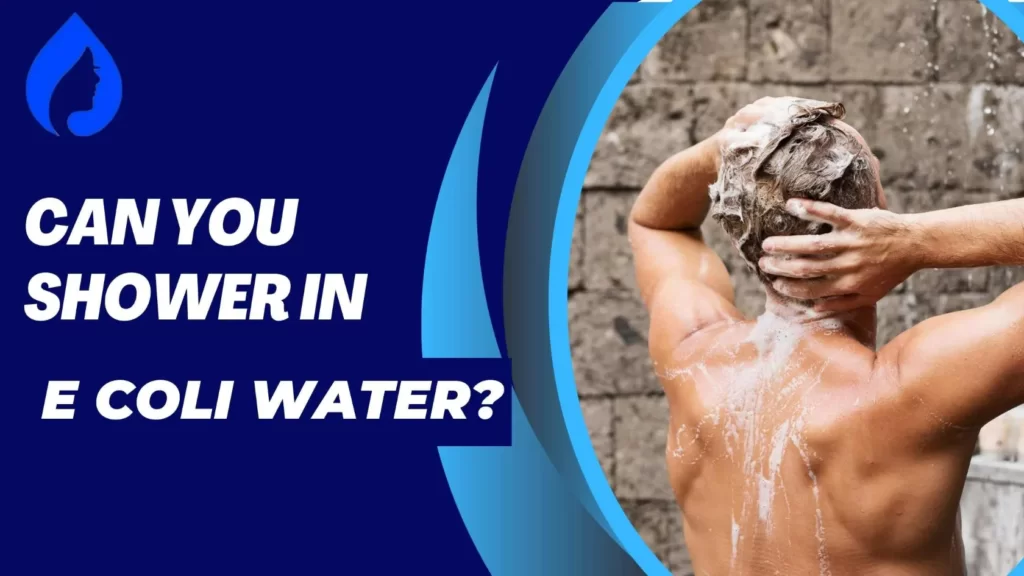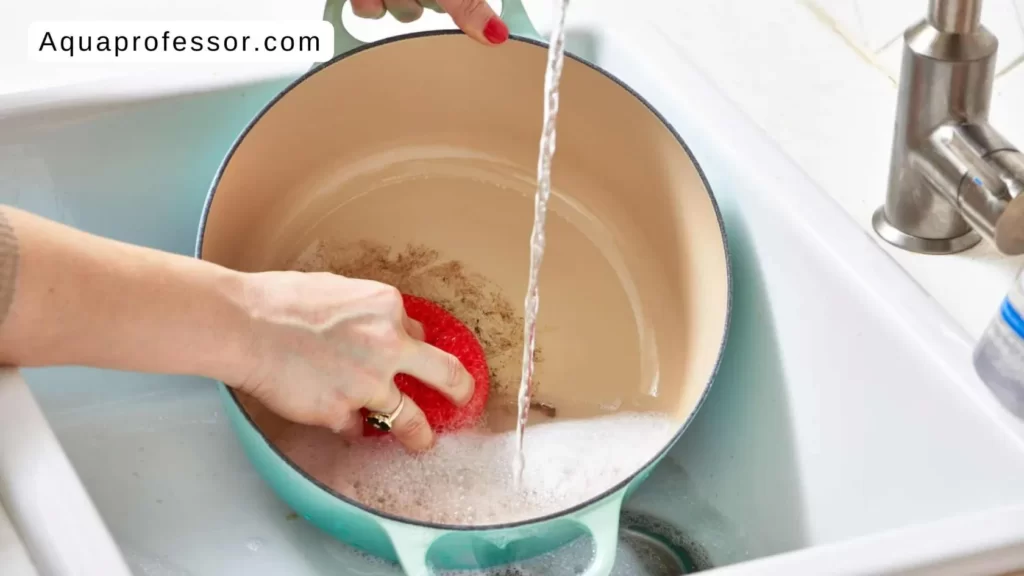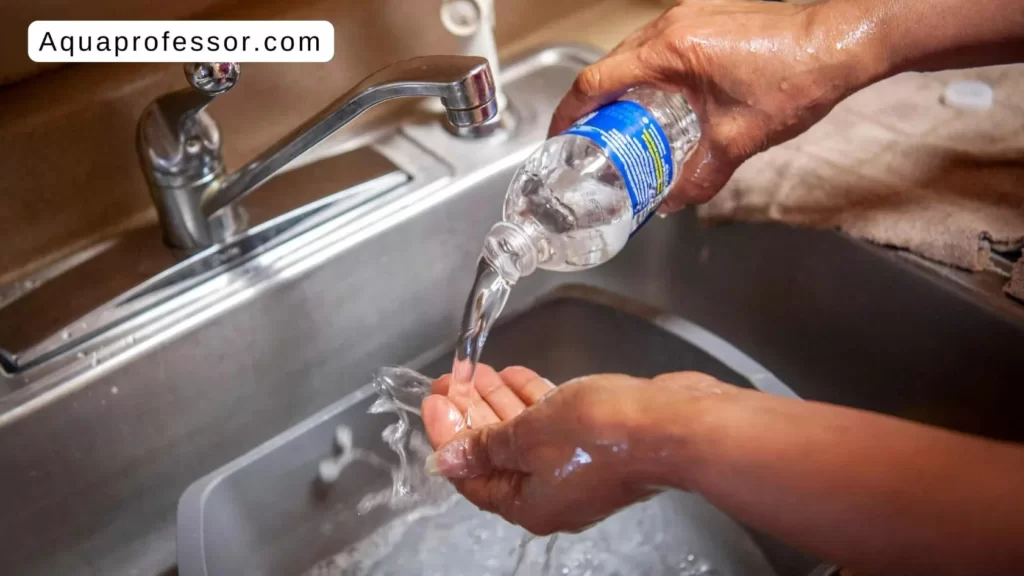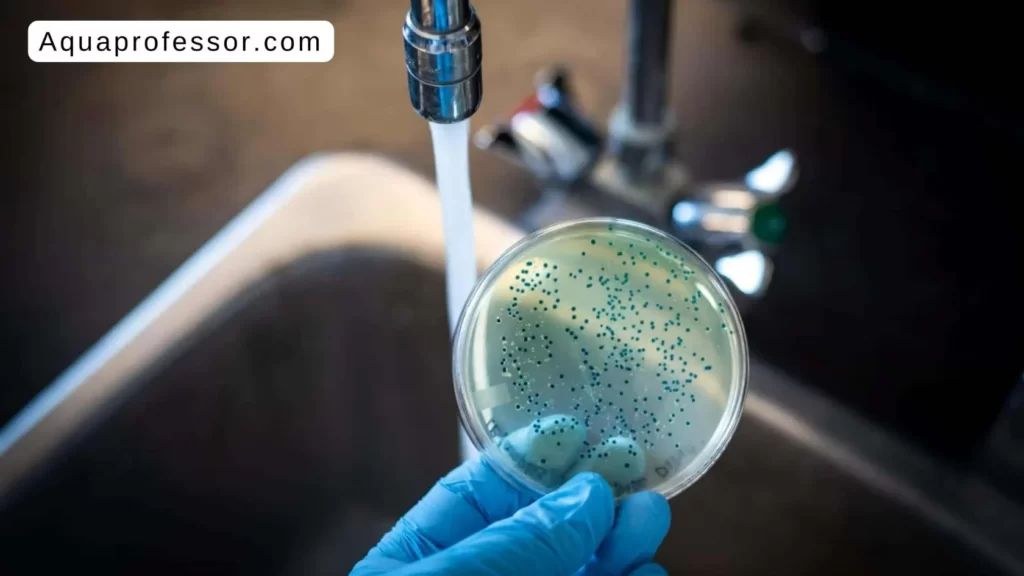
Adults can shower in e coli water if they don’t swallow it. E coli doesn’t get absorbed through the skin except if you’ve suffered a wound or have skin infections.
Infants and children should avoid showering in e coli water as they may accidentally swallow infected water. You should keep bottled water for washing your hands after a shower.
Suspecting e coli in bathing water? Continue reading for a detailed guide on whether you can shower in e coli water and how to prevent its exposure effectively.
💦What Happens if There Is E. Coli in Your Water?

E. coli is commonly used to indicate sewage contamination in water sources.
If there is E. coli in your water, it can have several harmful effects on your health and the environment. These effects may include:
Public water systems are required by law to notify customers if their tap water is suspected of E. coli contamination.
If you receive a notice from your water supplier indicating that your water may be contaminated with E. coli, it is crucial to follow their instructions and avoid drinking the contaminated water until the issue has been resolved.
Also Read: Is It Safe To Drink Shower Water?
🧼Washing Clothes or Dishes in E Coli Contaminated Water?

No, you should not wash clothes or clean dishes with water that contains E. coli bacteria. It is essential to avoid using contaminated water for any purpose, as it can lead to the spread of bacteria.
Instead, use bottled water or drink the water that has been boiled for at least one minute and cooled before using it for washing or cleaning.
Also Read: Can RO Remove Bacteria?
🤔How To Remove E coli From Water
🦠How Do I Know if My Water Has E. Coli?

Before removing E. coli from your water, it’s essential to determine it’s presence. Here are some ways to detect E. coli in water:
Also Read: Is It Ok to Wash Hair With Well Water?
👉What Is the Best Way to Get Rid of E. Coli in Water?

E. coli is a form of bacteria that can contaminate water supplies, posing health dangers to those who drink it.
The good news is that there are various ways to remove E. coli from water.
Also Read: Are Sparkling Bottled Water Brands Safe?
💡Can You Shower With E. Coli Water: FAQs
Can you absorb E. coli through your skin?
No, normally, you will not absorb E.coli through the skin. It’s because the skin’s outer protective layer prevents foreign substances, including E.coli, from entering the body.
However, if you’ve areas like open wounds, burns, or skin problems, there’s a legit risk of E.coli absorption, so ensure you take proper first aid care and avoid contaminated food and water.
What happens if you drink water with e coli in it?
If you drink water that has E. coli in it, you might get health concerns like stomach cramps, diarrhea, or vomiting. In severe cases, it can lead to kidney failure, especially in the elderly, young children, and people with compromised immune systems.
How long does e coli live in water?
E. coli can survive atleast 3-4 weeks in groundwater at 10oC and 27 days in river water at 14-20oC. The lifespan of E. coli in water can be affected by different factors such as:
1. Temperature (it dies above 160°F/70°C)
2. pH (it dies lower than 4 pH or higher than 9 pH)
3. Presence of other microbes.
Is brushing teeth with e coli water safe?
No, it is not safe to brush teeth with E coli water. You can swallow water while rinsing your mouth, which can cause diarrhea. It’s best to use bottled water or boil it for atleast 5 minutes.
Can you shower during a boil water notice?
Yes, it is generally safe to take a shower during a boil water notice, as the risk of contracting E. coli through skin contact is low. However, infants and toddlers should avoid showering in such water as they tend to swallow water which can lead to severe gastric illnesses, as mentioned above.

Naina has a profound understanding of how water quality affects our overall well-being. Her expertise is a guiding light for those seeking to live a healthy life. Besides raising awareness, her write-ups provide practical advice on identifying and mitigating water-related issues.
